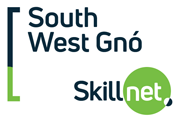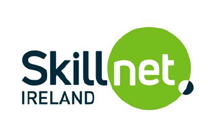About this Training:
This training will enable you to gain a recognised professional qualification as a coach on our ICF
accredited Professional Coaching Skills programme. You will develop the attitude skills and key
competencies of an effective professional coach on our established, in-depth and highly
experiential course.
Our trainers are ICF accredited Professional and Master Certified Coaches who also have
extensive business and organisational experience. You will also be supported by an integrated
mentor team on your learning journey.
During this training you will develop the attitudes and learn the skills of an effective professional
coach. Through continuing practice, observation and feedback, you will have the opportunity to
become highly proficient.
Our purpose is not simply to provide you with a toolkit of powerful techniques and processes.
Techniques have their place and can be useful in moving us forward in various ways, but the point for
us is that essentially it will be you, as a coach, who develops.
We will question, encourage, challenge and support you in your learning. In other words you will
be coached throughout the course. You will have the opportunity to develop yourself so that
coaching becomes an authentic part of who you are.
As you develop your self-awareness you will become more able to ‘get out of your own way’, and
out of the way of your Clients. You will become able to listen and question more deeply and
accurately, be more aware of your perceptions, insights and intuitions, and become more skilled
in communicating simply, honestly and effectively.
As you increasingly bring this way of being to your work, you will become more and more able to
be truly present with, and for, your clients. The quality of your attention and engagement will
become a catalyst that accelerates your clients’ progress; they will feel affirmed, extended,
liberated, energized and stimulated to grow. They will increasingly develop themselves into who
and what they want to be.
We are passionate about the development of coaching as a profession, and committed to the
pursuit of excellence based on clear ethical standards, thorough training and continuing
professional development.
We have designed a stimulating, demanding and enjoyable course that will bring out and develop
your own inherent knowledge and abilities. We think you will find this a deeply fulfilling journey.
Training Methods:
Our teaching style reflects a person-centred approach to adult learning. Our principal method is
experiential learning: learning by doing, coupled with personal reflection and exploration. We
include mini-lectures, demonstrations, course notes, discussion groups, experiential work in twos
and threes, filmed input and recording.
A trainer and a select group of mentors facilitate learning. Places on our training programmes are
limited to ensure that each student is regularly observed via formal observations and receives
detailed feedback from the trainers as well as the mentors.
During the training please allow approximately five hours per week for reading, peer coaching
practice and written work.
Training Aims:
Modules 1 – 5 (20days)
This is an original programme teaching best professional theory and practice. This Module’s
primary focus is to develop and refine our inherent interpersonal skills, such as perceptive,
empathic listening and questioning, and our ability to engage with others so as to create real
connection, clarity, choice and forward action.
We build on this foundation with a thorough training in the co-active coaching model, together
with selected processes from Neuro-Linguistic Programming.
We think it is valuable to have a psychological model to aid our thinking and have chosen
Transactional Analysis, widely used in business and personal development. Throughout the
programme the International Coach Federation (ICF) Core Competencies provide the criteria and
framework for evaluating participants’ growing coaching skills.
Training Structure:
The programme is 20 days in length and presented each month (Friday to Monday), over a period
of five months. To qualify you must be present for at least 18 of the 20 days.
Practical and written assignments:
All assignments are designed to enable you to integrate the skills you will be learning and to prepare
for practicing as a coach. Before and between the training days of the Programme, you will be doing
some reading, below are two books that you can begin with. As you go through the programme you will
keep a learning journal and you will complete practical work and three written assignments.
To get you started with your Reading List please read either:
· Starr, J. (2016) The Coaching Manual. 4th Ed. Pearson Education, Harlow, UK. (Kindle edition available) OR
· Stevens, N. (2005) Learn to Coach: The Skills You Need to Coach for Personal and Professional Development How to Books. How to Books Ltd. Oxford, UK. OR
· Rogers, Jenny, (2016) Coaching Skills: The Definitive Guide to Being a Coach 4th Ed. ·Open University Press, Oxford UK.
Module 1Assignments
• Assignment 1:1 Assessment of Prior Learning (APL) This assignment is designed to enable you
to reflect on your journey before starting the programme in relation to your experience, skills,
knowledge and abilities.
• The on-going work is your Learning Journal, which is only seen by you but used to help you
write Assignment 1:3
• Assignment 1.3 Reflective Essay following your completion of the 20 days. It is vitally
important that you make small entries as you go through the training days, and put these into a
more cohesive form in between our meetings; it will be almost impossible for you to write your
reflective essay unless you make regular notes. We will give you more detailed guidelines and
information on how to keep your journal, how you will use it to write your essay and the reasons
for developing your capacity to reflect.
• There are other pieces of work to do during the programme. Most of these are learning by doing.
You will be coaching other course participants, and will be the client of colleagues who will coach
you. You will make recordings of yourself coaching.
• You will complete a written skills analysis, where you analyse your coaching according to the
guidelines we give you. Finally, you will be observed while coaching another course participant
on three occasions and receive feedback as you progress through the programme.
Entry Requirements:
Applicants will be required to be 25 years of age or older at the time of commencement of the
programme and to successfully complete a phone interview. The interview process will be used to
assess the applicant’s capacity to complete the programme and will include:
• A discussion of the applicant’s reasons for wishing to do the programme
• A discussion of the applicant’s background and experience
• The extent to which the applicant would themselves be a suitable candidate to receive coaching
Our programme attracts mature and motivated people from a wide range of backgrounds. We find
the learning experience co-created with such a diverse and committed group is very powerful. We
believe you will too.
Time commitment:
In addition to the twenty days spent in face-to-face training, you will:
• Undertake peer coaching – giving and receiving 4 hours of coaching in between each Module,
totaling a number of 16 hours as coach and 16 hours as coachee.
• Keep a log of any coaching hours you deliver as part of building the 100 hours required (on
application) to apply for the credential of Associate Certified Coach with the International Coach
Federation.
• Spend time reading the books on the reading list.
• Maintain your learning journal after or during each weekend and after giving and receiving
coaching and whenever else you want to!
• Complete and submit written assignments.
• Be observed 5 times during the course of the programme
Qualification:
At the end of the training programme, provided that you have been present for at least 18 of the
20 training days, and completed both practical and written assignments, you will receive a
Coaching Development Certificate in Professional Coaching Skills that states you have completed
135 Hours of ICF Approved Coach Specific Training Hours.
ICF Accreditation:
Coaching Development has been awarded Accredited Coach Training Program (ACTP) status
by the International Coach Federation (ICF), the world’s foremost independent, professional
coaching body. The Programme that is accredited as such is our Diploma in Coaching which
comprises:
Diploma Part I: Professional Coaching Skills
The 135 skills training hours completed during this training are recognised as ICF Approved Coach
Specific Training Hours (ACSTH). This, as the name suggests, is a part component of an ACTP.
Graduates of Part I Diploma have met the training requirements necessary to apply for an ICF
credential at Associate Certified Coach (ACC) or Professional Certified Coach (PCC) level,
depending on the number of client coaching hours that have been accrued on application
(minimum 100 for ACC and 500 forPCC). We teach at PCC Level.
Diploma Part II: Developing Mastery
Coaching Development’s Developing Mastery course forms Part ll of the Diploma in Coaching and is
open to all certificate graduates of Coaching Development’s Professional Coaching Skills (Part I
Diploma in Coaching). This is a distance-learning programme offering facilitated skills development. It
provides rigorous continuing professional development, enabling participants to deepen and develop
their coaching skills. The course challenges the student to coach consistently at PCC standard and
supports the development of reflective, informed and ethical professional coaching.
On award of the Diploma in Coaching graduates will have satisfied all required attendance and
assessment criteria for application directly to the ICF for an ACC or PCC credential
Programme Summary and Logistics:
Programme Dates 2022:
Face-to-face training will be run in 4 day modules. Online training will be run in 3
day modules with additional practice sessions advised.
Spring Cohort Autumn Cohort (for reference)
March 19 -22 September 10 – 13
April 16 – 19 October 08 – 11
May 14 – 17 November 12 – 15
June 18 – 21 December 10 – 13
July 16 – 19 January 14 – 17 2023
Programme Recognition:
135 ICF ApprovedCoach Specific TrainingHours (ACSTH)
A part component of an ICFAccreditedCoach TrainingProgram (ACTP)
Facilitator: Ailbhe Harrington
Mobile: +353 (0)87-2372084
Programme if delivered face-to-face at:
Laois EducationCentre
Block Road
Portlaoise
Online via the Zoom platform
Time: 9am – 5.30pm daily
Course Duration:
Spring Cohort: March – July 2022
Autumn Cohort: September 2022 – January 2023
Programme Fee: €5,250
SWG Skillnet Members Fee: Skillnet can offer up to 30% funding on this programme, so cost to learner will be €3,675.
Bookings
Bookings are closed for this event.


